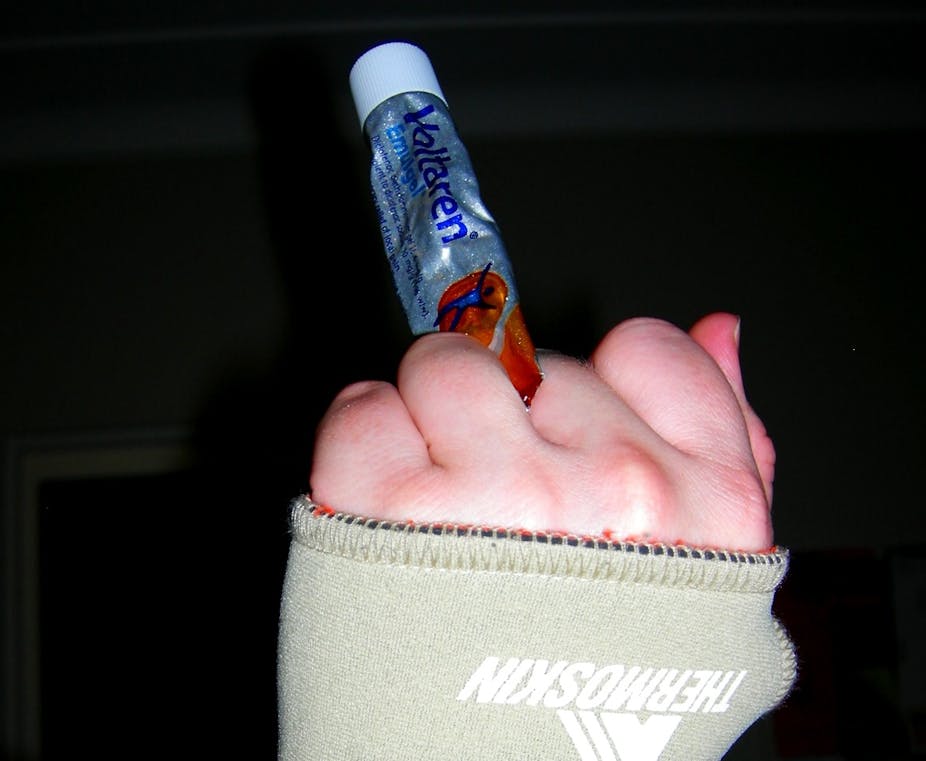The painkiller diclofenac, sold as Voltaren, should be pulled from the market, argue researchers from the UK and Canada, after finding it remains popular despite known cardiovascular risks.
Scientists have known for over a decade that some non-steroidal anti-inflammatory drugs such as diclofenac were associated with heart attacks and strokes in vulnerable patients.
In a study published today in the journal PLOS Medicine, researchers found that diclofenac, on average, was the most commonly used NSAID in 15 countries studied, despite being associated with more cardiovascular complications than other NSAIDs, including naproxen.
Diclofenac is the third most popular NSAID in Australia.
Researchers looked at the national essential medicine lists from 100 countries, and found 74 of them listed diclofenac, while only 27 listed naproxen.
The researchers said in their paper it was likely that diclofenac was taken by many individuals at high risk of cardiovascular events.
“We believe there’s no advantage over safer drugs, and we believe it should be withdrawn from world markets,” Dr David Henry of the Institute for Clinical Evaluative Sciences in Canada told CBS News.
“Given the availability of safer alternatives, diclofenac should be de-listed from national essential medicine lists,” said study lead author Dr Patricia McGettigan, from the William Harvey Research Institute in London.
Essential medicines lists form the basis of national drugs policy and government subsidies for drugs in many countries. Changing the status of diclofenac in Australia could see it removed from the Pharmaceutical Benefits Scheme.
In an accompanying Perspective on PLOS Medicine, K. Srinath Reddy from the Public Health Foundation of India and Ambuj Roy from the All India Institute of Medical Sciences, said the dangers of keeping potentially harmful drugs on EMLs in low- and middle-income countries were especially high.
Professor Reddy and Dr Roy, who were not involved in the study, said the results suggested immediate action to remove diclofenac from EMLs was warranted, and that the World Health Organization should provide information on the safety of NSAIDs.
Professor Paul Rolan from the University of Adelaide said the study confirmed what was already known about diclofenac.
“The real issue in pain is balancing benefit against potential for harm,” said Professor Rolan, who was not involved in the study.
He said that all painkillers had some side effects, and it was important for patients to make informed decisions.
“We’ve got paracetamol, we’ve got ibuprofen, we’ve got aspirin. They do all sorts of terrible things, but they also help pain.”
Professor Rolan said that for many patients, if a painkiller worked, it was worth taking.
He said his advice for diclofenac use was the same as for any other drug: “Use it when it works, use the lowest dose and use it for the shortest possible time.”
Voltaren cream that contains less than 1% of diclofenac was taken off Australia’s prescription medicine list and moved to pharmacy medicine in 1997.

